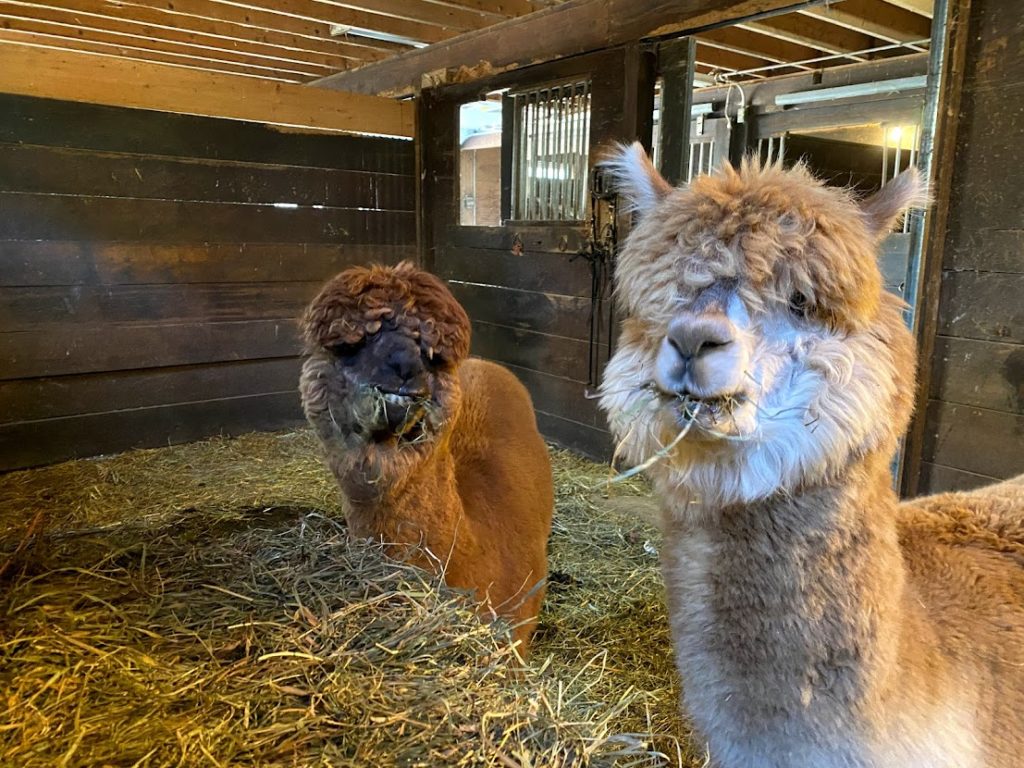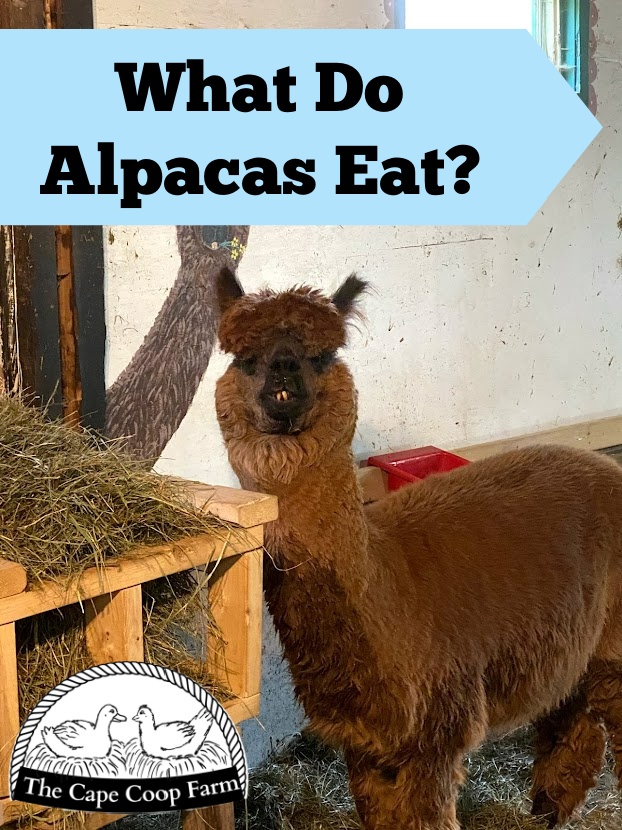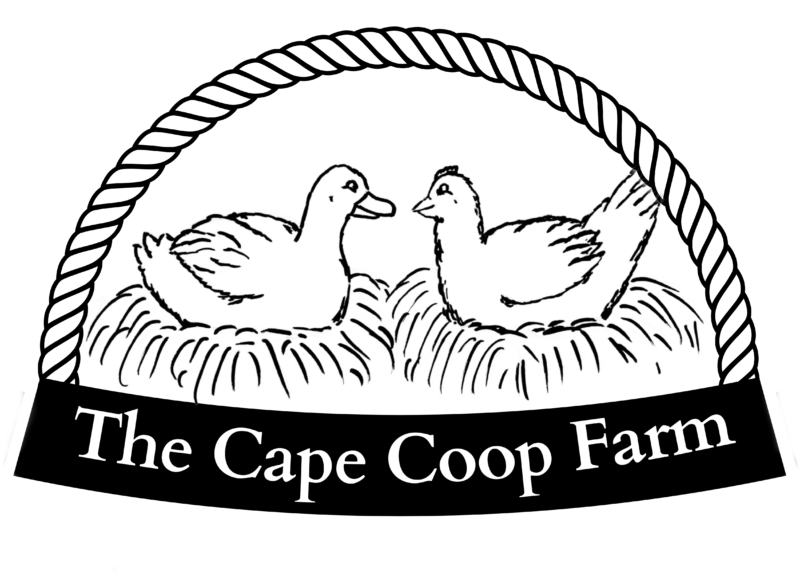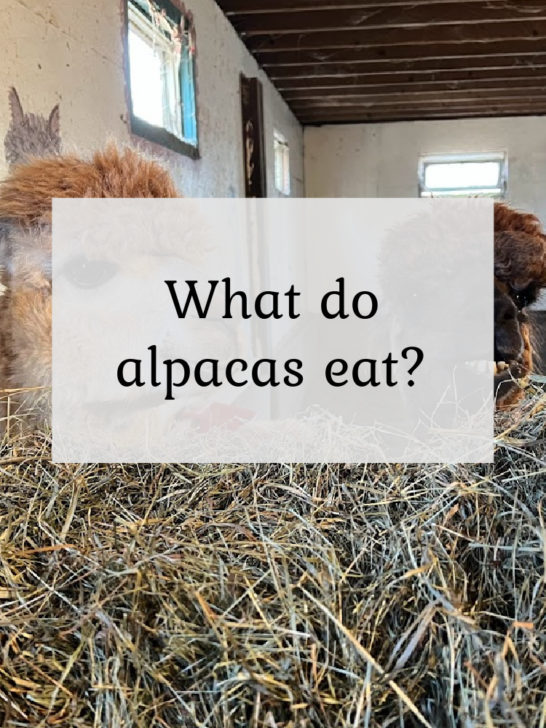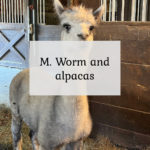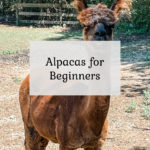---------------------------------------------------------
Alpacas are a domesticated mammal originating from the South American mountains, notably the Andes of Southern Peru, Western Bolivia, Ecuador, and Northern Chile. Their wild ancestors, vicunas, can still be found there. Alpacas have been domesticated for over 1000 years and were invaluable to daily life in the local cultures. Today, Peru, Bolivia, & Chile are still home to the largest percentage of alpacas but they can be found on farms all over the world.
Alpacas are herbivores and only eat vegetation. They spend most of their day grazing. The majority of their diet should be made up of grass and hay. Alpacas are very efficient eaters. Having evolved in the harsh high altitude Andes, their bodies are primed for pulling every last bit of nutrition out of a small amount of pasture. With one stomach having three compartments, alpacas are ruminators who chew cud and produce rumen. This allows a 125-pound alpaca to only require about 2 pounds of food per day (only about 1.5% of their body weight).
You should avoid rich grass/hay like alfalfa unless your alpaca is pregnant, nursing, or struggling to gain weight. Orchard and Timothy grass are better choices. Take care when storing and feeding hay. Hay should be kept dry to discourage the growth of mold which can be deadly if ingested.
In the front of their mouth, alpacas have a row of bottom teeth and a hard dental pad on the top. They use this combination to shear the grass rather than pulling it out like some other livestock. Alpacas are easy on your pastures and great at keeping the grass trimmed! They swallow the grass whole, then regurgitate it as cud which they will chew with their back molars.
In addition to grass and hay, alpacas are known to enjoy browsing on other vegetation like leaves, wood, bark, and plant stems.
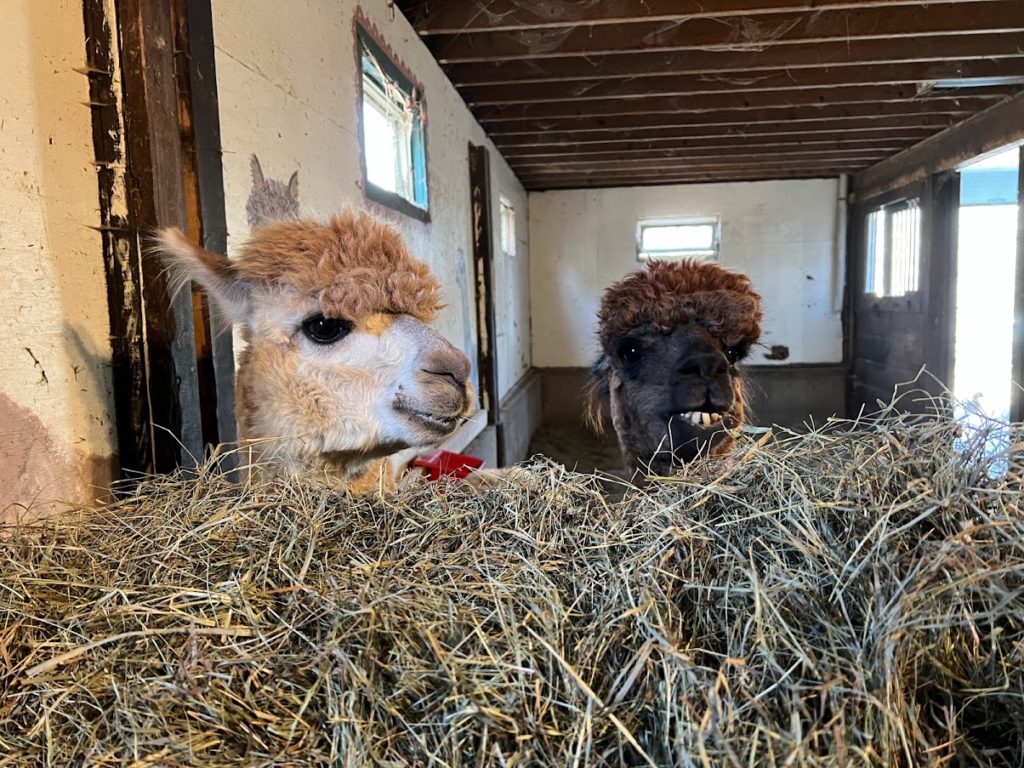
Alpaca Feed Pellets
If you do not live in the mountains of South America, it will be hard to replicate the nutrients an alpaca would gain from their native grasses & plants. For this reason, alpaca owners should also offer daily pellets. Commercially made alpaca pellets are made with a fortified mix of grains, vegetables, minerals, and vitamins alpacas need to stay healthy, particularly vitamins A & E and selenium.
We offer our alpacas 1/2 cup pellets twice a day, daily….and it is their favorite part of their day. They come running when they hear the feed can rattling!
Loose Minerals
In addition to the pellets, we also like to have a bin of loose minerals. We keep this available for free choice browsing year-round. Stillwater Minerals is a great resource for alpaca & llama minerals. Most alpacas won’t use salt licks so loose minerals in a sheltered area by their feed work well. It is important to only use minerals designed for alpacas. Many livestock salt licks or mineral blocks contain high levels of copper which can be toxic to alpacas.
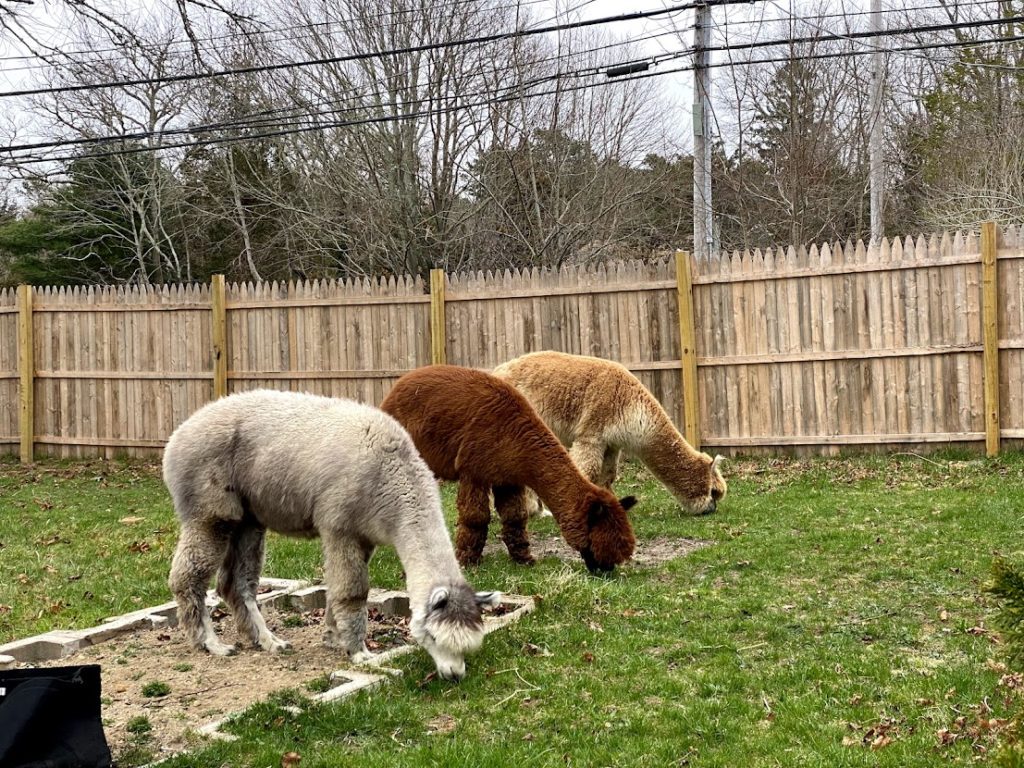
Additional Treats
Although additional treats should only be an occasional treat, alpacas do like a variety of vegetables and fruit. They can be very suspicious of new food, however. It will likely take introducing the food several times before they get excited about taking it.
Some treats to try – shredded carrots, shredded apples, broccoli stalks, romaine lettuce, berries, bananas, watermelon, and various herbs. Be sure to cut up or shred large chunks of fruit & vegetables to they don’t choke. Remember they don’t have very many teeth for slicing!
Food treats to that TOXIC to alpacas – all parts of pitted fruits like avocados & cherries, kale, nightshade plants & fruit (tomatoes, potatoes, eggplant), chocolate & “junk” food, any type of animal meat or animal product (like eggs or milk). It is also best to check with your local extension office about native plants that could be toxic. Click here for an excellent compiled list of commonly found poisonous plants to keep an eye on in your paddocks.
Shredded beet pulp makes a nice high fiber treat for alpacas. You can usually find this where they sell horse feed. Dry beet pulp can be a choking danger, so you will want to pre-soak the dried shreds. In the winter, try soaking it with warm water. They will love the warmth, take in extra water to stay hydrated, and get some extra fiber in a time when pasture growth is scarce.
